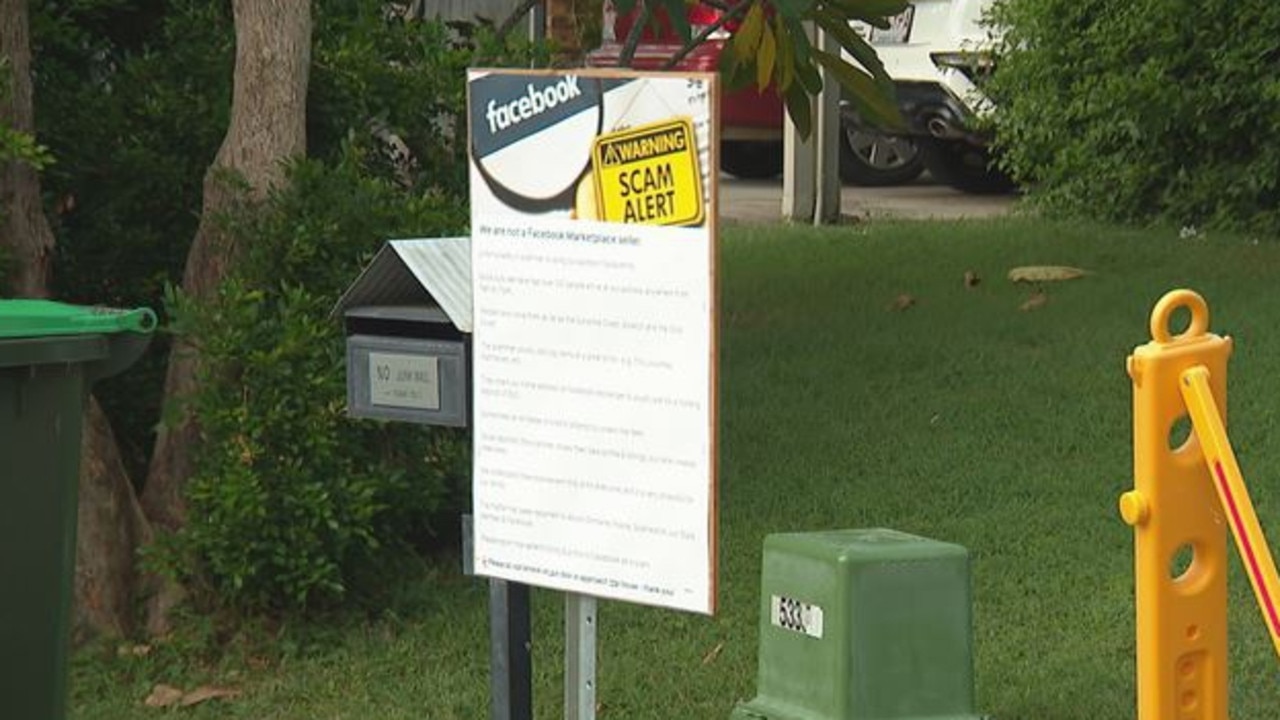TGA announces crackdown on Ozempic online scams, illegal prescribing
TikTok has fuelled demand for the so-called “skinnypen” Ozempic. Here’s how Aussies are getting the diet drug amid a global shortage.
National
Don't miss out on the headlines from National. Followed categories will be added to My News.
The Therapeutic Goods Administration is investigating a number of websites claiming to be selling a type 2 diabetes medication that many use for weight loss.
The so-called “skinnypen” semaglutide, otherwise known as Ozempic, has become highly sought-after diet drug thanks to TikTok and other social media platforms.
The self-injectable drug has been in shortage since last year, with the increase in global demand creating shortages all over the world.
The Therapeutic Goods Administration (TGA) announced in February that shortage was easing, although it urged Australian doctors only to prescribe semaglutide to patients with type 2 diabetes until stock levels stabilised.
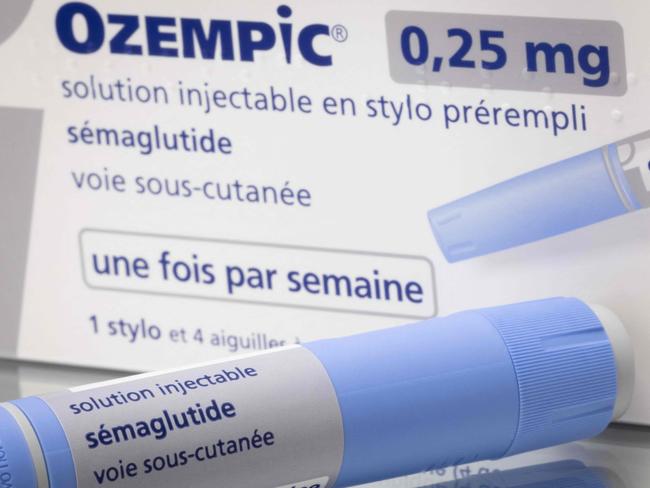
The shortage has spawned a number of websites claiming to be selling products containing semaglutide, as well as scams targeting people wanting to use semaglutide for weight loss, the TGA revealed in a statement.
“In some cases consumers who pay for products online fail to receive any product, while in other cases the product received is not semaglutide,” the TGA said.
“Even for those individuals who receive semaglutide, it may not be medically suitable for them.”
The TGA urged consumers to “only obtain these products from an Australian pharmacy and when dispensed on a valid doctor’s prescription”.
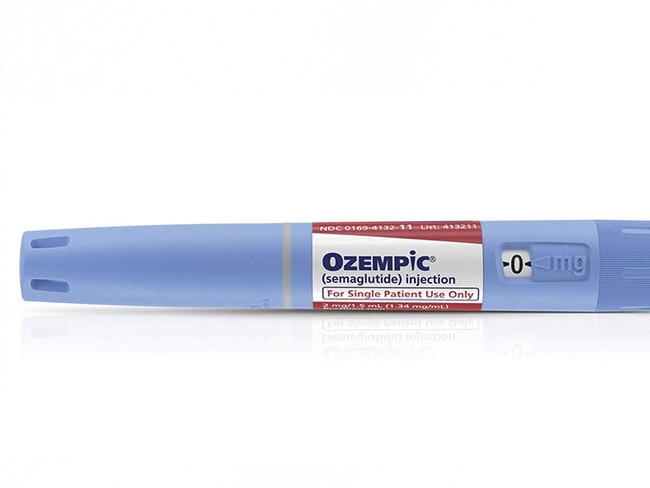
“Advertising prescription medicines such as Ozempic is prohibited,” the TGA said.
“If you see any Ozempic products being advertised online this is a clear warning sign that the advertisement could be a scam. You can report illegal of questionable practices online to the TGA.”
Scams include the promise of purchased product being delivered to a consumer’s home address; that the product being purchased is authentic; offers to compound semaglutide in a pharmacy; and advertising offers being distributed to GPs for distribution to their patients.
“Consumers are strongly advised not to use products unless they have come from a trusted source,” the TGA advised.
“Novo Nordisk is the only legitimate manufacturer of semaglutide (Ozempic).”
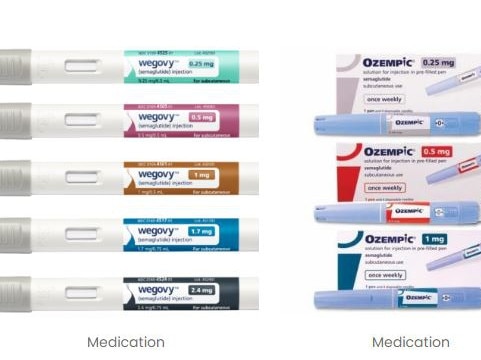
Legitimate products also include some overseas alternatives to Ozempic (semaglutide) that the TGA has approved for temporary supply. A list of all overseas approved products is available on the section 19A approvals database available on the TGA website.
These medications are only available with a legitimate doctor’s prescription.
“We are likely to see similar fraudulent advertisements for other diabetes and weight loss medicines,” the TGA said.
“The TGA are working with other regulators in relation to these scams. We take appropriate action against non-compliant advertising where we can.”
A simple Google search by the News Corp National News Network on April 2 found a number of sites offering Ozempic as well as other self-injectables used for weight-loss, including Saxenda and Wegovy. None indicate they have affiliation or approval from Novo Nordisk.
One site even offered all three of these drugs to Australian buyers without a prescription.
“You can (sic) Ozempic semaglutide for weight loss in Australia without prescription,” it says on its home page.
“We make Ozempic insulin affordable for people in all over the world. You might SAVE UP TO 90% if you buy Ozempic online at our pharmacy. Place your order and get it delivered fast.”
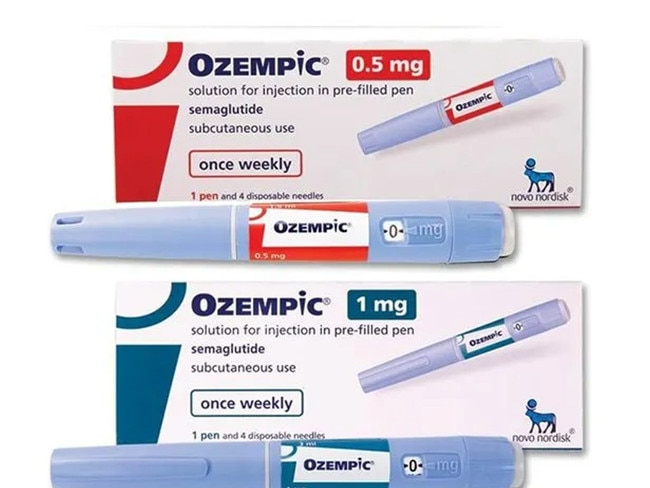
The company reveals it is a US pharmaceutical company that delivers insulin products to Australia. The products are shipped from its warehouses in Victoria.
It should be noted that semaglutide is not an insulin product.
“Buying insulin from Australia is 100% legal, you should calm down if you had any worries about that,” the website states.
“Lots of people from the Australia choose their supplier here due to the overpriced insulin in the Australia. As the ones with people’s interests as the priority, we are proud that we are able to help clients save hundreds of dollars per year on their medication needs.”
The company running the website has been contacted for comment.
A spokesman for the TGA told News Corp that this was an overseas-hosted website that was directed at Australian consumers.
“The TGA is continuing to make enquiries into this matter, including to determine the entity responsible for the advertising, and whether the TGA has jurisdiction to take action,” he said.
“This is because it is difficult or impossible to take regulatory action against websites that are based overseas and do not have a commercial presence in Australia.”
Between July 1, 2022 and April 3, 2023, the TGA has requested the removal of more than 1200 advertisements of Ozempic appearing on digital platforms.
“Consumers are warned to be cautious when there are domestic or global shortages of medicines …,” he said.
“Consumers should also be wary of online offers and advertisements for hard to obtain products that are likely too good to be true.”
Ozempic, like any other prescription medication, should not be provided without a prescription and an appropriate doctor’s consultation.
The drug will not suit everybody, and a doctor will be able to explain the potential side-effects, as well as how to properly administer the injection.
According to the product information, general side effects can include decreased appetite, headache, vomiting, indigestion, burping and wind, constipation, heartburn, painful or swollen stomach, weight loss, injection site reactions such as bruising and rashes, dizziness, fast heart beat, fatigue, changes to vision, unpleasant, abnormal or altered taste sensation, and low blood sugar.
More serious, and rare side effects include acute pancreatitis, serious allergic reaction and acute kidney injury.
Originally published as TGA announces crackdown on Ozempic online scams, illegal prescribing



